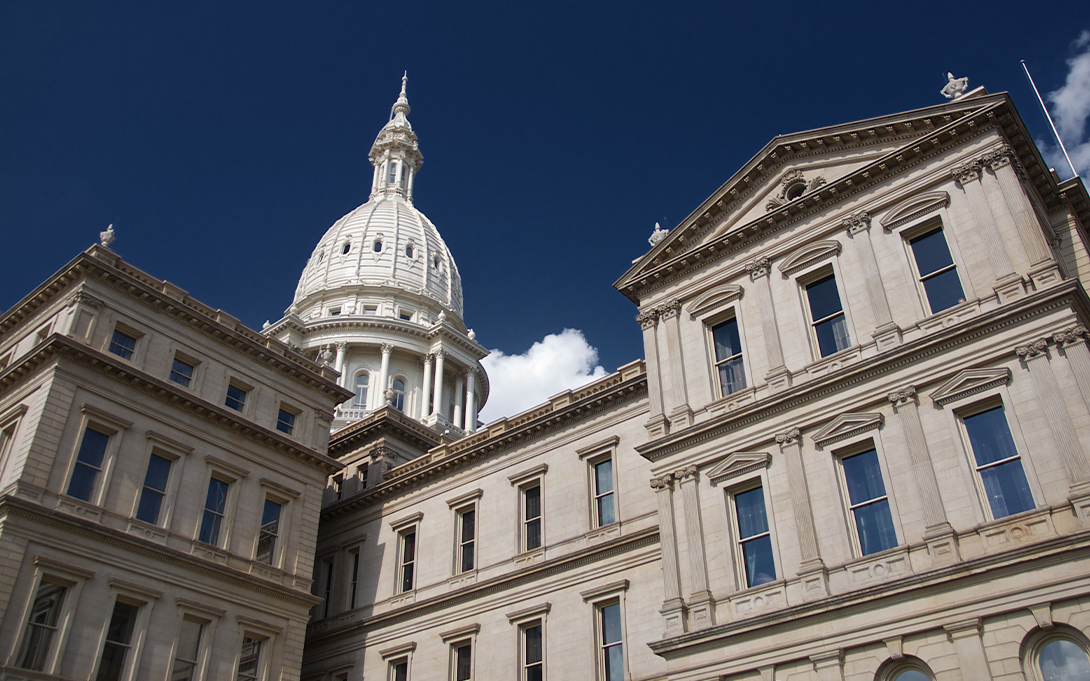
Despite significant opportunities for infusions of federal funding over the past two years, Michigan local officials report little change in the fiscal health of their local governments and feel concerned about their governments’ long-term financial prospects, according to a recent report by the Michigan Public Policy Survey (MPPS).
In the spring of 2023, the MPPS asked local officials to rate their governments’ fiscal stress on a scale of 1 to 10, where 1 is perfect fiscal health and 10 is fiscal crisis.
In the report, 63% of local leaders rated their governments’ fiscal stress as relatively low (4 or less), while 8% said it was high (7 or higher); that is compared with 65% who reported low fiscal stress and 7% who reported high fiscal stress in 2022. These ratings are essentially unchanged from officials’ estimates of local government fiscal stress over the past three years.
“The lack of change was surprising because federal initiatives have targeted large-scale new funding at local governments since the COVID pandemic,” said Debra Horner, senior program manager for the MPPS. “We would hope that Michigan local governments would report they are doing much better financially. It seems these federal programs have only helped on the margins so far, and not led to wide-spread fiscal improvements.”
In fact, only 36% of local officials reported they were better able to meet their communities’ fiscal needs compared to a year ago, a drop from 41% in 2022. The improvements they did experience were small, not systematic shifts, the survey found. In addition, 18% said they were less able to meet their fiscal needs compared to the year before, a statistic that is essentially unchanged from 2022.
What is most telling about the survey data is local officials' predictions for the future, Horner said. About half of the officials surveyed believed their communities would experience low fiscal stress in five years, down from 63% who reported low stress currently. And 13% percent predicted high fiscal stress in five years, up from 8% who report high fiscal stress today.
“That warning sign is distressing,” Horner said. “People may think local governments are doing great right now because both the state and national economies look strong. But officials are telling us, ‘We’re just getting by and we’re not really optimistic about the future.’”
By population size, mid-sized jurisdictions—communities with 5,001 to 10,000 residents—were less likely to report low fiscal stress compared to 2022. Smaller and larger jurisdictions reported little change compared to 2022.
Officials in urban areas reported they took a significant fiscal hit. The percent of urban jurisdictions reporting low fiscal stress dropped by 16 percentage points from 63% in 2022 to 47% in 2023, a new low point since the MPPS began tracking the differences between urban and rural communities. Reports of low fiscal stress also declined among local governments identified as “mostly urban” and “fully rural.” Meanwhile, more communities that identify as “mostly rural” reported low fiscal stress in 2023 compared to 2022.
The data presented in this policy brief come from the Spring 2023 MPPS, conducted February 6 – April 17, 2023. The MPPS is an ongoing census survey of all 1,856 general purpose local governments in Michigan conducted since 2009. Respondents include county administrators, board chairs, and clerks; city mayors, managers, and clerks; village presidents, managers, and clerks; and township supervisors, managers, and clerks from 1,307 jurisdictions across the state, resulting in a 70% response rate by unit.
Written by Sherri Hall
